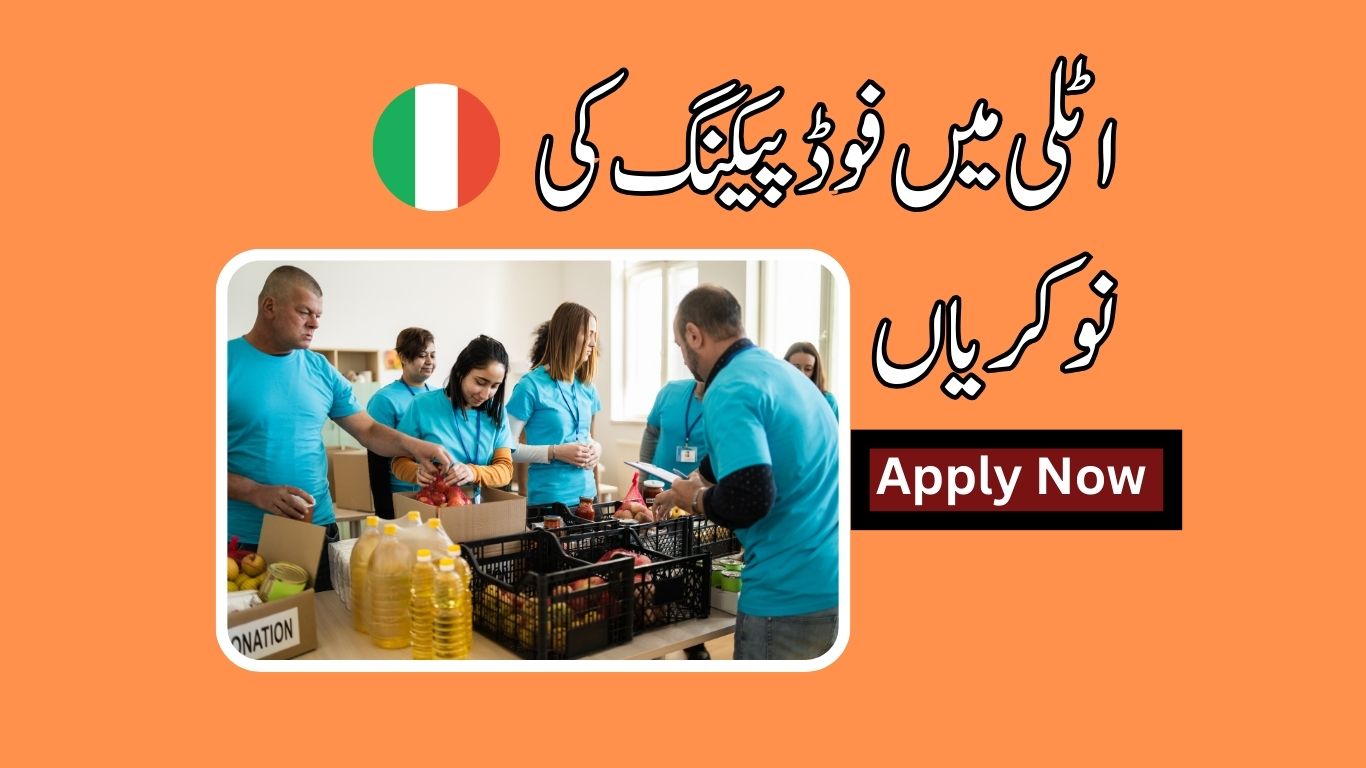Food packing jobs in Italy present valuable opportunities for individuals seeking employment in the food production and logistics sectors. These roles are essential for ensuring that food products are safely packed and ready for distribution.
Job Description and Responsibilities
Food packing positions typically involve:
- Operating Packaging Machinery: Handling machines that package food items efficiently and safely.
- Sorting and Organizing Products: Ensuring products are correctly sorted and organized for packaging.
- Ensuring Food Quality Standards: Monitoring products to meet quality and safety standards.
- Labeling and Sealing Packages: Applying appropriate labels with product information, nutritional facts, and expiration dates, and sealing packages securely.
- Monitoring the Packaging Process: Overseeing the packaging process to ensure it runs smoothly.
- Adhering to Health and Safety Regulations: Following all relevant health and safety guidelines to maintain a safe working environment.
Salary Expectations
📦 Packing & Packaging Job Salaries in Italy
| Role | Experience Level | Monthly Salary (EUR) | Apply Now |
|---|---|---|---|
| Entry-Level Packer | 0–1 year | €1,200 – €1,500 | Apply Now |
| Experienced Packer | 1–3 years | €1,500 – €1,800 | Apply Now |
| Senior Packer | 3+ years | €1,800 – €2,200 | Apply Now |
| Packaging Operator | 1–3 years | €1,600 – €2,000 | Apply Now |
| Packaging Specialist | 3+ years | €2,000 – €3,000 | Apply Now |
| Packaging Associate | Entry-level | €1,300 – €1,360 | Apply Now |
Educational and Legal Requirements
Most employers require a high school diploma or equivalent. Experience in food processing or production is advantageous but not always mandatory. Basic knowledge of Italian is beneficial for communication and safety compliance. Foreign workers seeking employment in Italy must ensure they have the necessary legal documentation, including valid work permits and visas, to avoid any legal complications during their stay.
Benefits and Working Conditions
Benefits may include:
- Health insurance
- Paid leave (vacation days, public holidays, sick leave)
- Job stability, especially in larger food production companies
- Shift flexibility, depending on the employer
- On-the-job training for those without prior experience
- Overtime pay, typically at a higher rate
Working hours often operate on a shift system, with common patterns being:
- Morning Shift: 7:00 AM to 3:00 PM
- Afternoon Shift: 3:00 PM to 11:00 PM
- Night Shift: 11:00 PM to 7:00 AM
Some employers may offer weekend or split shifts, particularly in larger production facilities.
Job Opportunities and Growth
Italy’s food industry is a significant sector, providing numerous job opportunities. Regions with a strong agricultural or food production base, such as Emilia-Romagna, Veneto, and Lombardy, offer the highest number of food packing job vacancies. There are also opportunities for career advancement, especially if you acquire additional skills or experience. With seniority, workers can progress to roles such as packing supervisor or manager.
Key Points to Consider Before Applying
- Location: Jobs in urban areas or regions with significant food production industries may offer higher salaries but come with a higher cost of living.
- Physical Demands: The job can be physically demanding, involving long hours of standing, repetitive motions, and occasionally lifting heavy packages.
- Language Proficiency: While many employers hire non-Italian speakers, having a basic command of Italian will be beneficial for communication and safety reasons.
How to Find Food Packing Jobs in Italy
- Websites and Job Boards: Online platforms dedicated to agricultural work often list job vacancies in Italy, allowing individuals to browse and apply for positions remotely.
- Employment Agencies: Specialized recruitment agencies can assist individuals in finding food packing jobs suited to their skills and preferences.
- Direct Applications: Some farms and food production companies in Italy accept direct applications from interested candidates, providing an opportunity for personal interaction with potential employers.
Visa and Work Permit Information
Foreign nationals must ensure they have the appropriate visas and work permits before seeking employment in Italy to avoid legal complications and ensure a smooth transition. Italy’s seasonal worker program is open to applicants from various non-EU countries, including Pakistan. The Italian government allocates seasonal work permits annually, a significant portion of which are designated for agricultural workers. To work in Italy as a seasonal worker, you must meet the following requirements:
- Work Authorization: Your employer needs to apply for work authorization at the One-Stop-Shop for Immigration in the Prefecture of the job site before you may enter Italy.
- Quota System: Due to Italy’s annual quota system, work permits are only issued up to a certain amount each year.
- Seasonal Work Visa: You must apply for a seasonal work visa at the Italian consulate or embassy in your place of residence after your work authorization has been authorized.
- Residence Permit: You must apply for a residence permit at the Prefecture in the province where you will work within eight days of your arrival in Italy.
- Proof of Funds & Fees: You need to pay visa application and residence permit fees, which vary depending on the duration of your stay.
